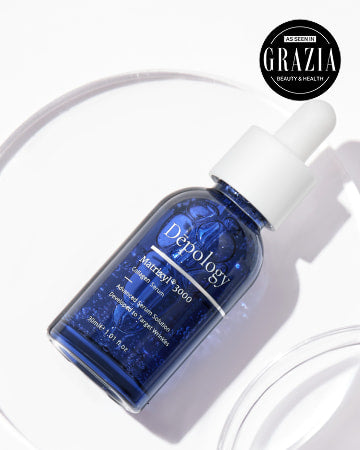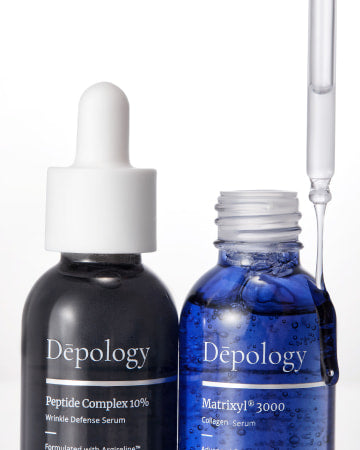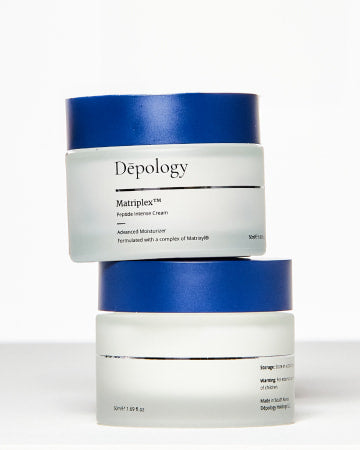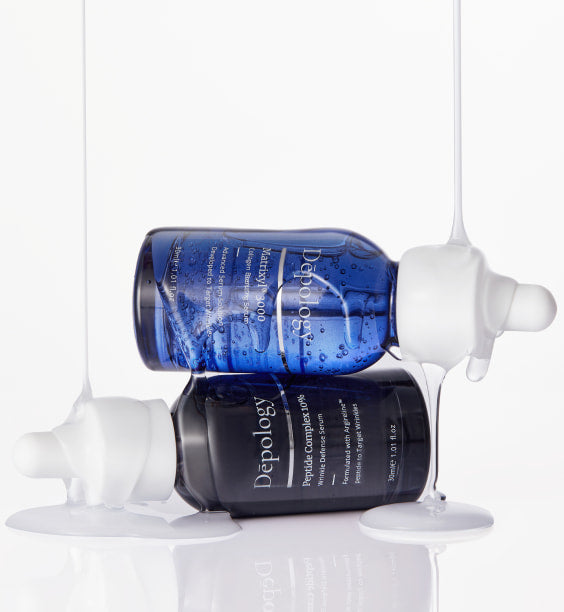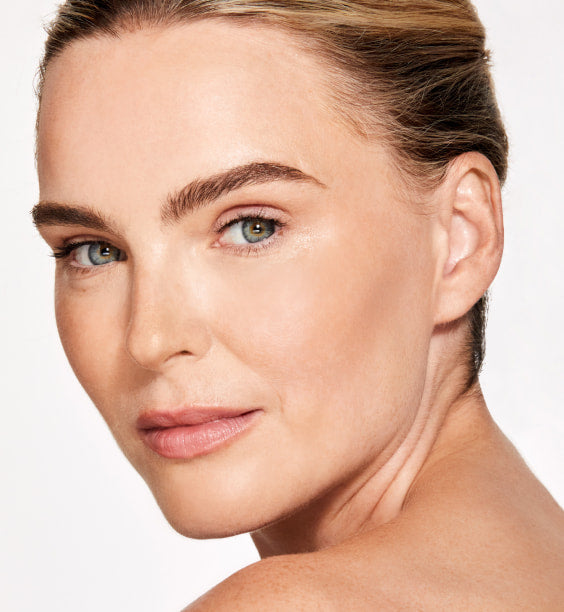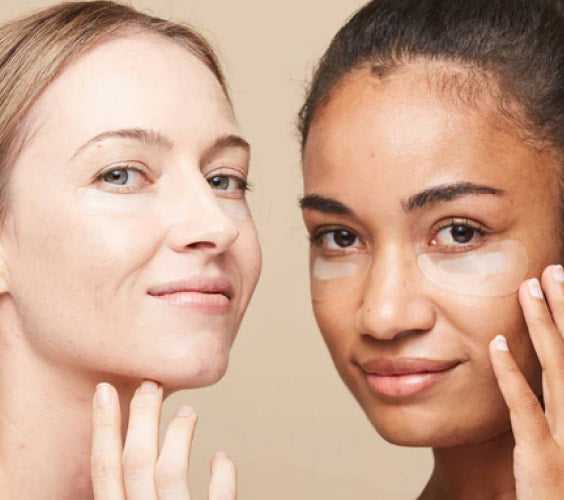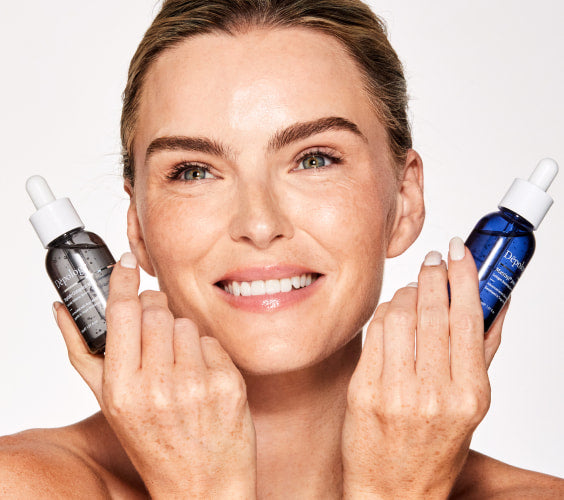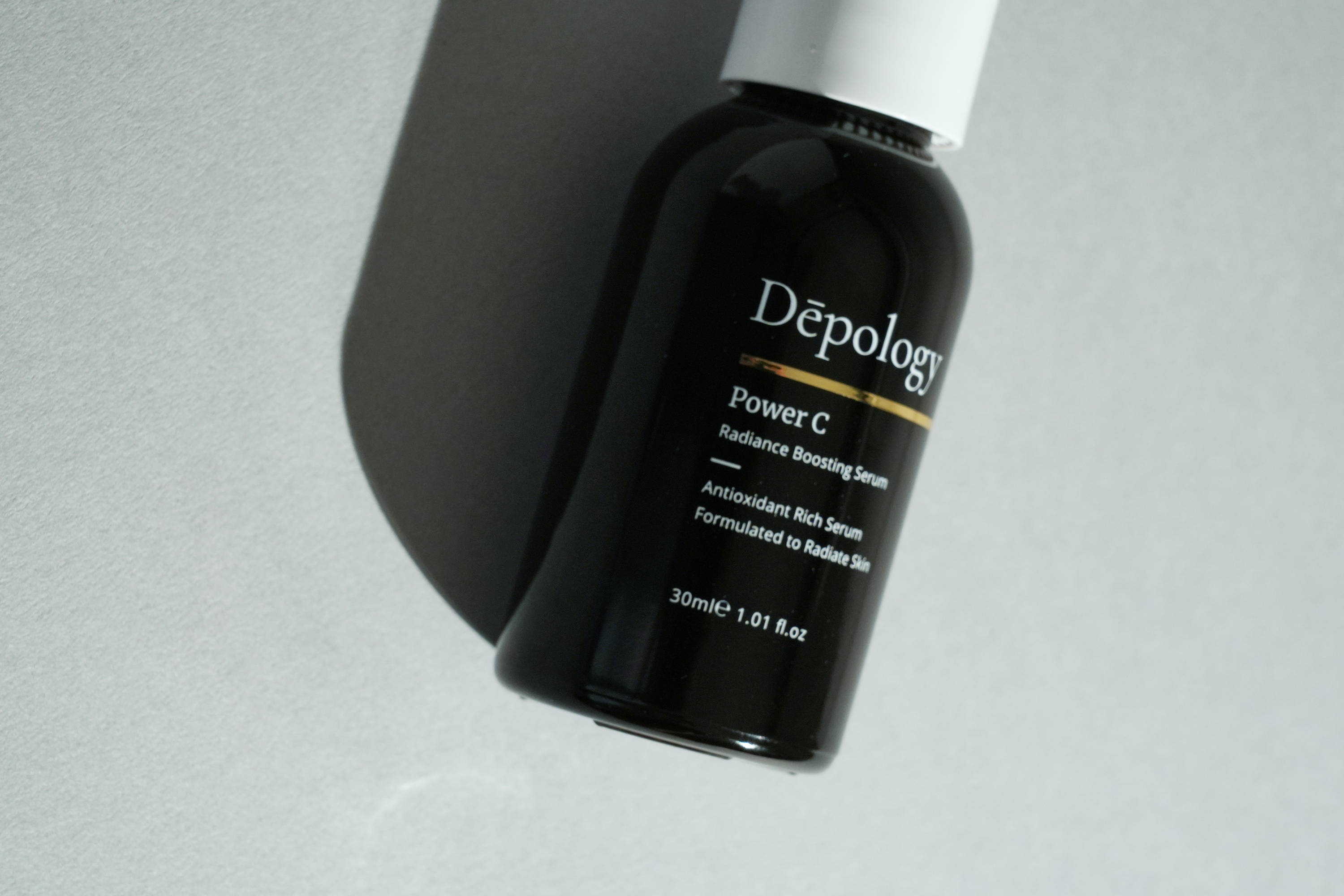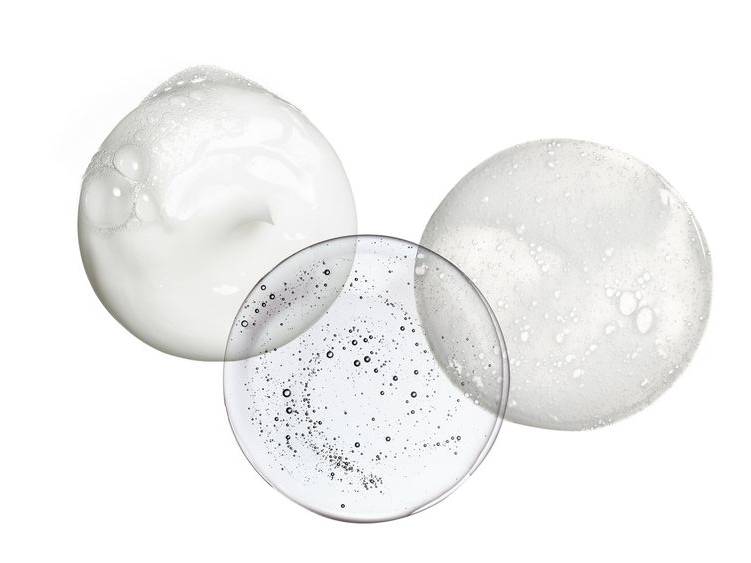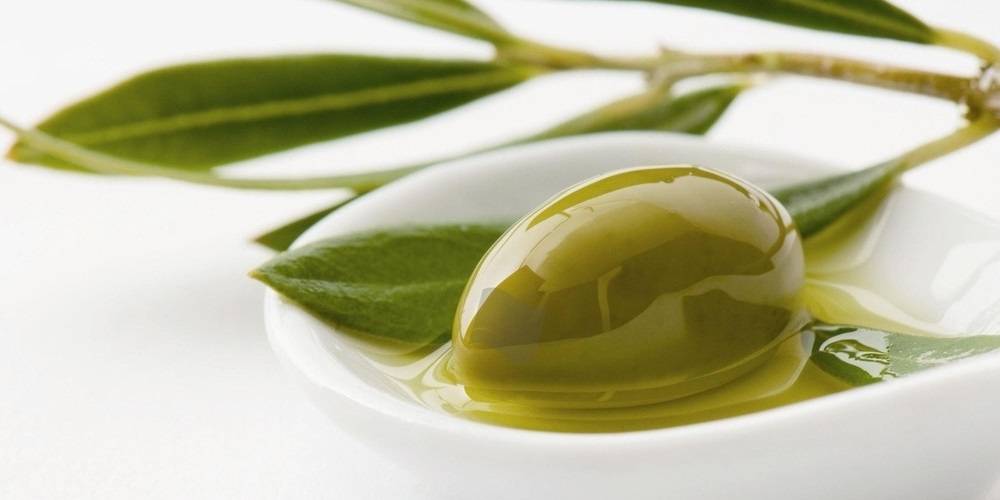
What Does Squalane Do For The Skin? - Benefits, Uses, and Compatibility
Our bodies do a lot of work that we aren’t aware of as we function every day. A naturally-occurring substance in the body, squalene rests in the epidermis or the area directly below the skin’s surface. This substance is produced by the skin’s sebaceous glands, encompassing 10-12% of the skin’s natural oils.
In regards to skincare, squalane is derived from the original form, squalene, and provides a lineup of capabilities once it transitions onto the market. Continue reading to find out how you can benefit from the versatile effects of this all-purpose ingredient.
Is squalane good for the skin?
Yes, squalane is considered valuable for the skin and is a popular ingredient in skincare products due to its resourceful benefits. Here are a few of the reasons why squalane is propitious for the skin:
Moisturizing Capabilities: A highly effective moisturizer, squalane’s lightweight, non-greasy texture makes it suitable for most skin types, including those with oily and sensitive skin. Squalane works by locking in moisture, preventing further dryness, and keeping the skin supple.
Sebum Production: Despite being an oil in nature, squalane helps balance the skin's oil production, making it a worthwhile addition to skincare routines for those with oily or acne-prone skin.
Skin Barrier Support: Squalane helps strengthen the skin's natural barrier function, further enhancing the skin's ability to protect itself from environmental stressors and prevent moisture loss.
Antioxidant Properties: Squalane has powerful antioxidant properties, allowing it to neutralize free radicals that can damage the skin and contribute to unwanted signs of aging. By reducing oxidative stress on the skin, squalane maintains a youthful and healthy complexion.
Anti-Inflammatory Properties: Squalane also has the potential to soothe irritated or sensitive skin in some users. It can be particularly beneficial for those with conditions like eczema or rosacea.
Enhanced Product Absorption: Furthermore, squalane enhances the absorption of other active ingredients in skincare products, thereby increasing the effectiveness of their formulation.
What are compatible ingredients with squalane?
A well-rounded skincare ingredient, squalane is compatible with a variety of other favorable skincare ingredients. It is typically used in formulations alongside fellow actives to enhance their efficacy and provide additional benefits to the skin. These are some congruent ingredients that bode well with squalane:
Hyaluronic Acid: A powerful biological humectant, hyaluronic acid attracts and retains moisture in the skin. Combined with squalane, it can provide a dual hydration effect, keeping the skin plump and hydrated.
Antioxidants: Squalane's antioxidant properties can be further enhanced when used in conjunction with other antioxidants like vitamin C and vitamin E. This combination emphasizes skin protection from free radical damage and maintains a lustrous appearance.
Peptides: Peptides are amino acid chains that can help improve the skin's texture and promote collagen production, an essential asset to retaining youthful skin. When mixed with squalane, they can both provide anti-aging benefits and support skin renewal.
Niacinamide: Niacinamide is known for its soothing and anti-inflammatory properties, often assisting those who suffer from dark spots. It can accompany squalane's ability to calm irritated skin and improve the overall health of the skin’s barrier.
Retinol: A highly effective ingredient for targeting signs of aging, such as fine lines and wrinkles, retinol is one of the most popular and strongest over-the-counter offerings on the market. Squalane can help mitigate potential dryness and irritation caused by retinol, making the latter more tolerable for sensitive skin.
CTA: Anti-Aging Retinol Night Cream
Ceramides: Ceramides are lipids that help strengthen the skin's barrier function and retain moisture. When used with squalane, these lipids can provide durable hydration and improve the skin's protective barrier.
Botanical Extracts: Squalane pairs rather well with botanical extracts like chamomile, aloe vera, and green tea. All of these extracts contain soothing and anti-inflammatory properties which are beneficial to those of all skin types.
Glycerin: Glycerin is a common humectant that can work alongside squalane incredibly well. Together, these ingredients maintain skin moisture levels and prevent dehydration.
Alpha Hydroxy Acids (AHAs) and Beta Hydroxy Acids (BHAs): Squalane can help buffer the potential drying effects of AHAs and BHAs, allowing these exfoliating ingredients to be more suitable for dry or sensitive skin types.
What is “plant-derived” squalane?
"Plant-derived" squalane refers to squalane oil that is obtained from plant sources rather than animal sources. A natural hydrocarbon, squalane is often found in small amounts in the sebum, or the natural oils, of human skin and is also present in the livers of certain animals such as sharks. However, squalane used in skincare and cosmetic products is most commonly sourced from plants, making it a cruelty-free and sustainable alternative to animal-derived squalane.
Plant-derived squalane is generally extracted from plant oils such as olive oil, rice bran oil, and sugarcane. The process involves hydrogenation, which converts unsaturated squalene (the precursor to squalane) into the more stable and saturated version used in skincare products.
Aside from being healthier and more viable in general, plant-derived squalane is a cruelty-free option, as it does not involve any harm to or association with animals. People who utilize this ingredient can rest assured that their skincare is aligned with their morals. Squalane is also a relatively stable ingredient and has a long shelf life, making it reliable in skincare formulations.
Are there any dangers or side effects to using squalane?
Though squalane is generally considered well-tolerated by most individuals, there can be variations in how the skin reacts, as with any product. There are a few potential considerations to keep in mind when incorporating squalane into your routine:
Allergic Reactions: While squalane is non-comedogenic, there is a rare possibility of an allergic reaction or sensitivity in some users. If you have a known allergy to olives (from which squalane is often derived) or other plant-based oils, try performing a patch test of the squalane product on a small portion of the skin, such as the under-arm before applying it on the facial area.
Quality and Purity: In some cases, squalane products can be contaminated with damaging substances during the manufacturing process. Always choose products from reputable sources to ensure you receive a high-quality squalane formulation that has been properly purified.
Skin Type: Some individuals may discover that squalane feels too heavy on their skin if they have excess sebum production. In these instances, using products with a lighter texture or lower squalane concentration might be more suitable and comfortable.
Compatibility with Other Ingredients: When using products containing squalane in combination with other skincare products, there is always the potential for interactions between ingredients, whether they be positive or negative. Some ingredients may enhance the absorption of squalane, while others may reduce its efficacy. Layering your skincare products correctly will often achieve the most desired results you are searching for.
Can I use squalane when pregnant?
As squalane is a naturally occurring substance in the skin's sebum and often derived from plant sources, it tends to be a safe and well-tolerated ingredient for most individuals, including pregnant women. However, as with any skincare product or ingredient during pregnancy, always exercise caution when using a new squalane product.
When introducing squalane into your routine, begin with applying a small amount to a small area of your skin, such as behind the ear or on the inner forearm, and observe for any signs of irritation or sensitivity for at least 24 hours.
If you don’t notice any increased sensitivity or adverse reactions, you should be safe to proceed as normal in your everyday routine. Of course, if you begin to notice symptoms of redness, irritation, or other abnormal occurrences, halt usage of the product immediately.
Is it OK to use squalane every day?
Yes, it is beneficial to use squalane every day as part of your skincare routine. It can be used in the morning and/or evening, depending on your skincare preferences and needs. The addition of squalane in your routine will not only ensure your skin is well-protected and moisturized but also help to prevent signs of aging from appearing.
When incorporating squalane into your daily routine, you can apply it as a standalone moisturizer, layer it with other skincare products, or use it as needed to address specific skin concerns. It’s often recommended to use toners and serums before applying products containing squalane. This is because squalane tends to rest on the surface of the skin, acting as a protective shield to retain moisture and proper absorption.
Conclusion
Squalane’s natural compatibility with our skin's lipid barrier, excellent moisturizing properties, and ability to combat various skin concerns make it an invaluable ingredient to incorporate into your skincare routine. Whether you're aiming to enhance hydration or reduce signs of aging, squalane offers effective solutions in multiple areas. If you choose to elevate your skincare exploration with squalane, you’re likely to experience the remarkable benefits it can bring to your daily life.
People also asked:
Is squalane good for oily skin?
Yes, squalane can be more than beneficial for those suffering from oily skin. Squalane is lightweight in texture and suitable for various skin types. A form of emollient, it can help hydrate the skin without making it feel greasy or exacerbating oiliness.
Does squalane clog the pores?
Squalane is considered to be non-comedogenic, which means it is less likely to clog pores compared to many other oils. However, individual skin reactions can vary, and what works for one person may not work for another.
Is squalane better than hyaluronic acid?
Squalane and hyaluronic acid serve different purposes in skincare, and their effectiveness depends on your skin's specific needs and the overall goals of your skincare routine. They are not necessarily better or worse than each other. In fact, they can complement each other and be used together for maximum benefits.
Hyaluronic acid is generally applied first to increase the skin's hydration, then followed with squalane to seal in the moisture and provide additional benefits. This combination can offer both deep hydration and moisturization.
Can squalane cause acne?
Non-comedogenic in nature, squalane is less likely to cause acne compared to some other oils. Some individuals with oily and acne-prone skin tend to find that squalane can help regulate oil production and maintain skin hydration without causing breakouts.
When should you not use squalane?
Squalane is known to be a generally well-tolerated skincare ingredient. However, there are exceptions to the usage of the substance as there are for most skincare options. These include, but are not limited to certain allergy sensitivities, those with specific skin conditions, and avoiding excessive application of the product.


